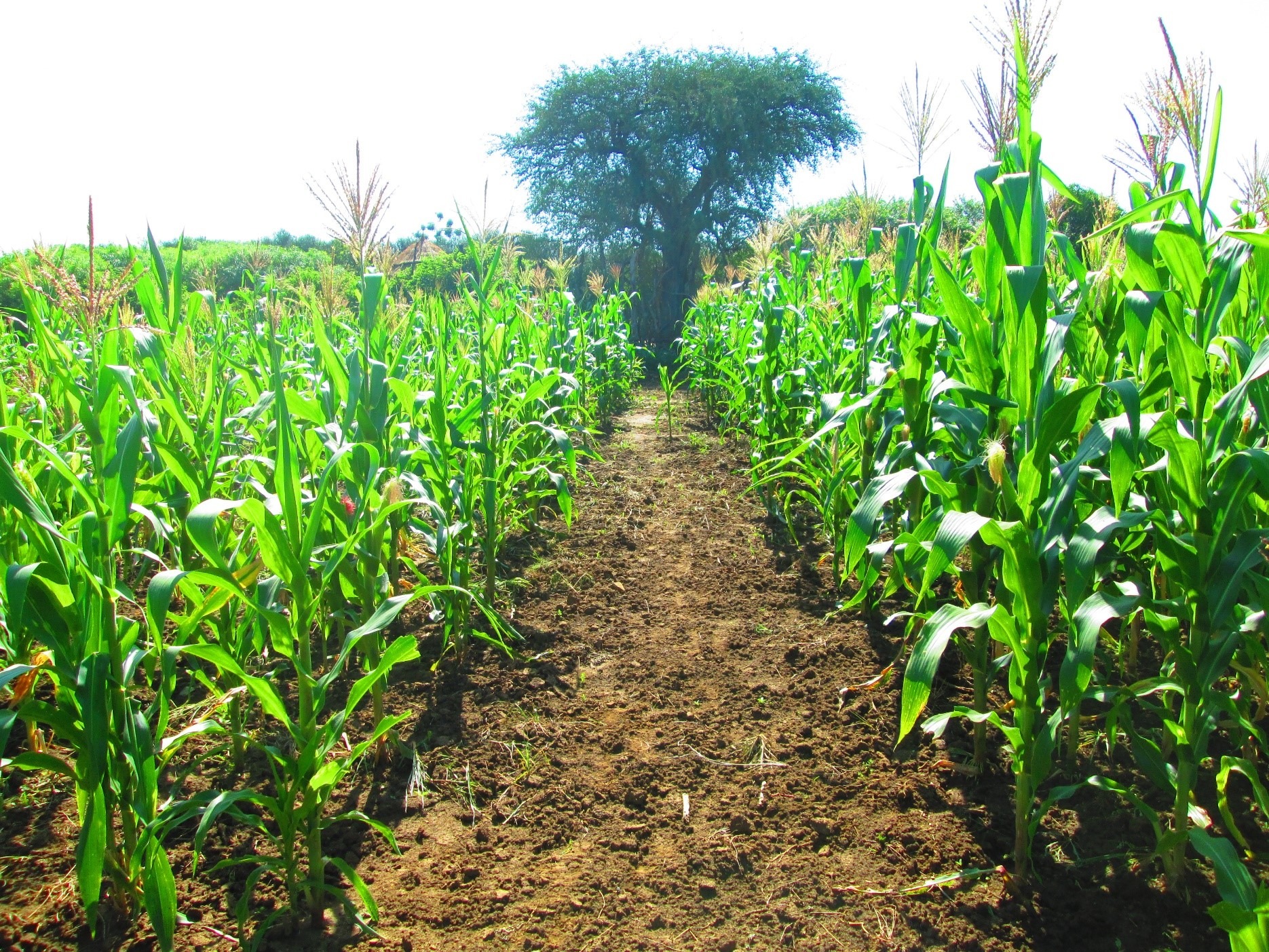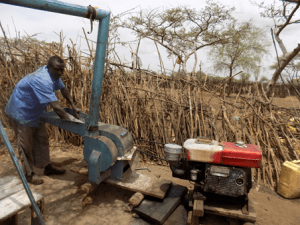
Traditionally, men in Karamoja in northeastern Uganda are herdsmen, looking after livestock while women are left to farming. But with declining livestock numbers after years of conflict, men are now looking to other livelihoods to support themselves and their families.
James Maleka, a father of four, used to work as a mason at different construction sites. When there was no construction work, however, he began selling locally produced beer, which brought in little money. In February 2013, when the USAID Resiliency through Wealth, Agriculture, and Nutrition (RWANU) project organized interested community members into farmer training groups, James was selected to participate. Despite his misgivings about agriculture being a woman’s job, he felt ready to learn.
“We used to know farming is for women, but this farming has bought for me a milling machine, which helps me buy things for the home. RWANU changed our minds to farming as a business, and it has really stayed in my mind.” – James Maleka, Ugandan farmer
Through these groups, RWANU trained members on good agricultural practices to boost the quality and quantity of harvests. Motivated by the training, James planted two acres of maize. His garden flourished, and soon he was recognized in his community as a leader farmer, with other farmers reaching out to him to learn how to improve their own gardens.

Based on the success of his first harvest and with more training sessions provided by RWANU, James decided to try vegetable production. He planted tomatoes on a quarter of an acre. Even before he could pluck the tomatoes, he had a buyer. As soon as the tomatoes ripened, he sold them and received $400. As he remembers, “I was so happy from the first planting because I made money.”
With this money, James bought a mill to grind his maize. He sold a portion of maize and then bought a generator to power the mill. “This mill has really helped us; we can grind the maize at home. Also, other people come to grind maize and sorghum.” Since James started operating his mill, 25 customers now visit his home every day.
Since 2013, the USAID RWANU project has worked with 5,754 male farmers, like James, to train them in good agricultural practices and farming as a business while building regional food security and resilience.





